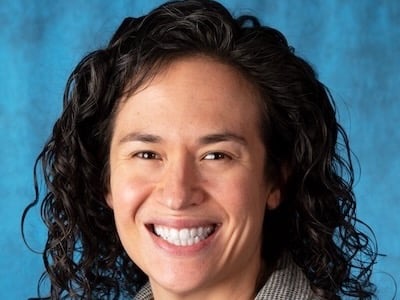Minority Stress, Relationship Processes, and Intervention Development for LGBTQ+ Couples and Families
 Open to Everyone
Open to Everyone
Intimate relationships play a critical role in shaping mental and physical health across the lifespan. However, LGBTQ+ couples and families face unique stressors rooted in stigma, discrimination, and systemic inequities. In this talk, I will present a programmatic line of research that integrates dyadic and longitudinal methods to understand how minority stress intersects with core relationship processes (e.g., communication, stability). Drawing from studies of same-gender couples, transgender and nonbinary partners, and sexual minority women of color, I will highlight findings from actor–partner interdependence models (APIM) that demonstrate both within-person and cross-partner effects of minority stress on relational outcomes. I will then describe the systematic approach my team has taken to intervention development, including community-engaged qualitative work, quantitative modeling of dyadic processes, and the creation and testing of culturally informed relationship education programs. Collectively, these studies underscore the importance of moving beyond deficit-based models to highlight both the vulnerabilities and cultural strengths of LGBTQ+ families, with the goal of dismantling systemic barriers and advancing health equity. The talk will conclude by outlining ongoing and future directions, including intervention refinement for transgender and nonbinary populations, the development of minority stress prevention programs for LGBTQ+ youth, and frameworks for supporting queer parents.
About the Speaker
Shelby B. Scott, Ph.D. (she/her), is an Assistant Professor of Clinical Psychology at the University of Texas at San Antonio and Director of the Promoting Resilience in DiversE Family (PRIDE) Studies Lab. Her research examines how minority stress shapes the relational and health outcomes of LGBTQ+ couples and families, with a focus on same-gender couples, transgender and nonbinary populations, and sexual minority women of color. Using dyadic and longitudinal methodologies, Dr. Scott’s work evaluates both universal and culturally specific relationship processes, aiming to identify pathways that foster resilience and well-being. She has led intervention development efforts, including relationship education programs for female same-gender couples and developed clinical guidelines for working with same-gender couples. Her research has been supported by the American Psychological Foundation, the Gay and Lesbian Medical Association, and the Association of American Medical Colleges. Dr. Scott is deeply committed to community-engaged scholarship, dismantling systemic barriers to culturally responsive care, and training the next generation of equity-focused researchers and clinicians.
Organizers
Institute for Social Research – Research Center for Group Dynamics

